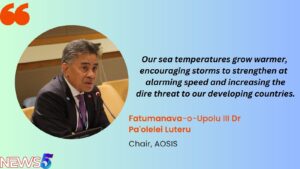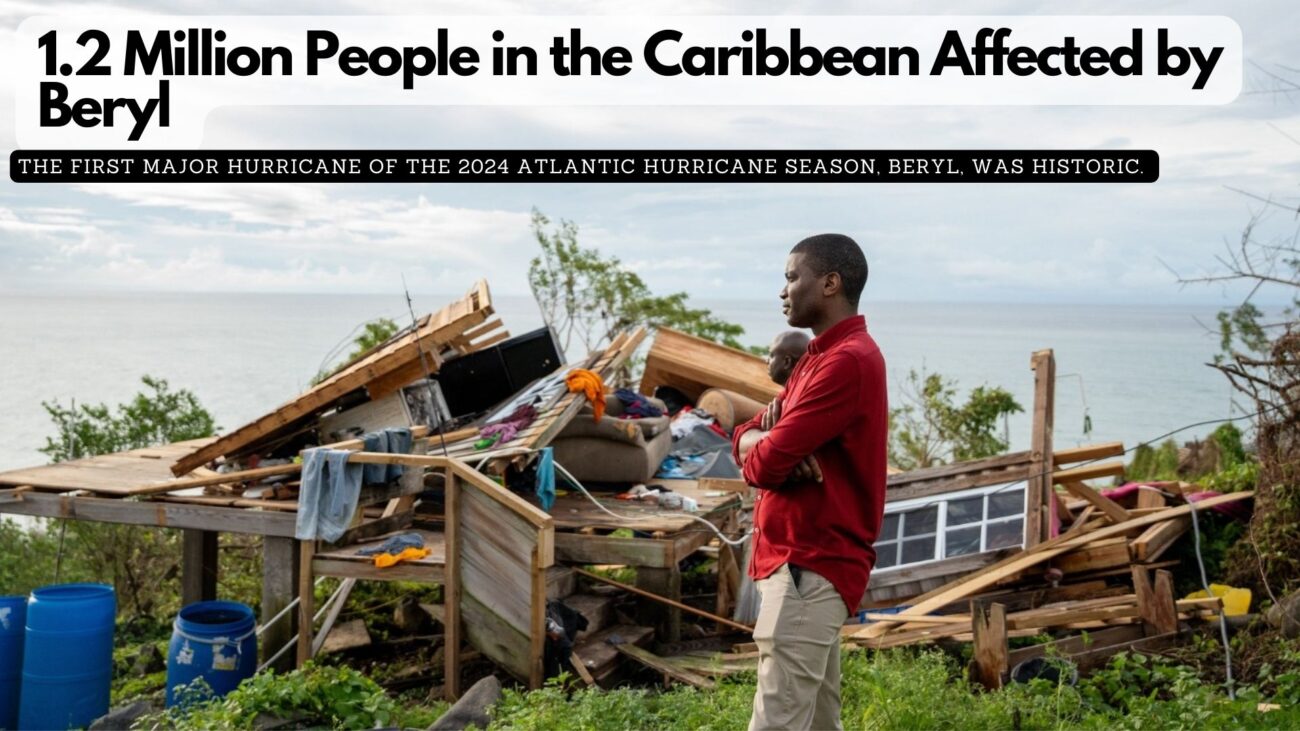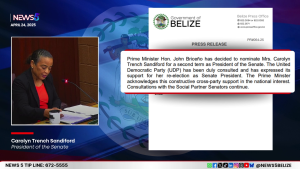1.2 Million People in the Caribbean Affected by Beryl
The record-breaking Beryl

The first major hurricane of the 2024 Atlantic hurricane season, Beryl, was historic.
Hurricane Beryl has affected numerous countries and territories, including Barbados, the Cayman Islands, the Dominican Republic, Grenada, Haiti, Jamaica, Mexico, Saint Vincent and the Grenadines (SVG), and Trinidad and Tobago. As of July 4th, the storm has tragically caused ten fatalities across the Caribbean—three in Grenada, SVG, and Venezuela, respectively, and one in Jamaica—alongside five reported missing.
On July 1, Beryl made landfall on Grenada’s Carriacou Island, unleashing its fury as a Category 4 hurricane. Fueled by unusually warm ocean temperatures, Beryl underwent remarkably rapid and unexpected strengthening.
It quickly surged to become the earliest Category 4 and Category 5 hurricane ever recorded, surpassing Hurricane Dennis in 2005.
Beryl also broke records by becoming the earliest Category 5 hurricane by over two weeks and ranks as the third earliest major hurricane recorded in the Atlantic. Only two storms, Alma in 1966 and Audrey in 1957, formed earlier in the season.
Beryl became the earliest June major hurricane to develop east of the Lesser Antilles, surpassing Hurricane Audrey’s 1957 record. Its wind speeds dramatically escalated from 65 mph on June 29 to 130 mph on June 30, a rapid intensification of 95 mph in just 42.5 hours.
The destruction

Hurricane Beryl shredded through the Caribbean after making landfall on Grenada’s Carriacou Island as a powerful Category 4 hurricane on July 1. Beryl’s destruction of Carriacou and Petite Martinique is unimaginable. It is, however, real. Officials painted a grim picture: almost every structure on the islands, where 9,000 to 10,000 people reside, lay in ruins. Structures were completely flattened. Among the casualties were Carriacou’s essential Princess Royal Hospital, its airport, and its marinas. Both islands languished in darkness, cut off from the world with no electricity and communications in shambles in the aftermath.
Simon Springett, UN Resident Coordinator in Barbados and the Eastern Caribbean, via video link from Grenada, said, “The entire island is completely affected… that is literally 100 percent of the population.”
A day after the passage of Hurricne Beryl, Prime Minister Dickon Mitchell addressed the nation. He said, “The situation is grim.”
Beryl caused widespread destruction in Saint Vincent and the Grenadines (SVG). According to the Prime Minister, Dr. Ralph Gonsalves, 90% of the homes on Union Island suffered severe damage or complete destruction. The UN Office for the Coordination of Humanitarian Affairs reports that approximately 200,000 people have been affected in both Saint Vincent and the Grenadines and Grenada. Media reports indicate that around 1,752 individuals in SVG are currently housed in 71 public hurricane shelters. The hurricane also caused significant damage to hundreds of homes, as well as government buildings and multiple churches in Saint Vincent. PM Gonsalve did a fly-over to see the extent of Beryl’s devastation.
Colvin Harry is a journalist working for NBC Radio in SVG. He covered the passage of Hurricane Beryl and continues to report on the devastation left behind. While he understood his responsibility as a journalist, Harry said it was a “scary point for us.”
Beryl struck Barbados on July 1. The Barbados Red Cross reported that around 208,200 people, or nearly 74% of the total population, felt the storm’s effects. Initial assessments revealed that 40 homes sustained damage, including roof loss, partial collapse, and leaks. Boats at the Bridgetown marina were damaged.
Beryl grew in strength as it neared Jamaica. Now, a powerful and dangerous Category 5, Beryl barreled towards Jamaica. It brushed Jamaica’s coast on July 3 as a CAT 4. In its wake, devastation. The storm delivered strong winds, hazardous storm surges, and widespread power outages to Kingston. Beryl, boasting sustained winds of 110 mph, was moving in a west-northwest direction and was forecast to retain hurricane intensity as it neared the Yucatan Peninsula. This prompted warnings and watches along the coastline.
Camol Walker was on the fifth floor of his apartment building when Beryl struck.
Signs of a Worsening Climate

Over the past year, the world’s oceans have experienced an unusual heating event. Since March 2023, global sea surface temperatures have hit record highs daily and remained elevated. As of 2024, temperatures are even higher than those in 2023. And warm water is fuel for hurricanes. Experts believe that this directly contributed to Beryl’s quick intensification.
Regional Coordinator for Climate Tracker Caribbean, Dizzanne Billy, told News Five, “Hurricanes like Hurricane Beryl are becoming more intense and frequent due to climate change, devastating Caribbean communities.” She said, “The human and economic toll is immense, with lives lost, homes destroyed, and livelihoods disrupted.”
“It’s imperative we address this through climate justice, ensuring those most affected receive the necessary support and resources. Climate finance is crucial in helping these vulnerable regions build resilience and recover swiftly. We need to see action, and we need to see it now.”
The Urgent Need for Climate Finance
Hurricane Beryl has significantly impacted Grenada, St. Vincent and the Grenadines, Barbados, and Jamaica, affecting over 1,280,000 people. On Grenada’s Carriacou and St. Vincent’s Union Island, every resident has been severely affected. Barbados’ southern coastal parish of Christchurch, including Bridgetown port and fishing communities, suffered extensive damage from storm surges. Jamaica’s southern parishes experienced the brunt of Beryl’s force as it moved along the coastline.
In a poignant statement, Ambassador Fatumanava Dr. Pa’olelei Luteru, Chair of the Alliance of Small Island States (AOSIS), expressed the deepening sense of despair among SIDS populations, stressing that decades of appeals for urgent, ambitious climate action have gone largely unheeded. Despite forewarnings of escalating climate impacts, such as the rapid strengthening of storms driven by rising sea temperatures, small island nations persist in shouldering the primary burden of a crisis not of their making. “Yet, we continue to be sacrificed on the frontlines of a climate crisis we did not cause. Our sea temperatures grow warmer, encouraging storms to strengthen at alarming speed and increasing the dire threat to our developing countries. The increased danger is evident for the world to see,” he said.
 Calling for COP29 to mark a pivotal turning point, Luteru demanded concrete actions, including a 45% reduction in emissions by 2030 and achieving net-zero emissions by 2050. “And a new climate finance goal that is fit for purpose for small island developing states is imperative. Developing countries must finally get a commitment from developed countries to provide efficient flows and access to the trillions of mostly concessional climate finance needed to recover from worsening climate change impacts and build resilience.”
Calling for COP29 to mark a pivotal turning point, Luteru demanded concrete actions, including a 45% reduction in emissions by 2030 and achieving net-zero emissions by 2050. “And a new climate finance goal that is fit for purpose for small island developing states is imperative. Developing countries must finally get a commitment from developed countries to provide efficient flows and access to the trillions of mostly concessional climate finance needed to recover from worsening climate change impacts and build resilience.”
Dr. Colin Young, Executive Director of the Caribbean Community Climate Change Centre (CCCCC), said that Hurricane Beryl’s impact underscores the urgent necessity for robust climate action and resilience-building efforts in the region. “The impacts from Beryl lay bare the climate injustice happening in the Caribbean and other small island developing states. The people whose lives and livelihoods have been lost and destroyed did nothing to contribute to the climate change that is now causing these monster hurricanes,” Dr. Young said in a statement. Highlighting the significant losses and damages incurred, Dr. Young stressed the urgent need for the operationalization of the Loss and Damage Fund under the UNFCCC to expedite financial resources to impacted countries.
In a July 1 statement, Chair of the Caribbean Community (CARICOM), Dr. Mohamed Irfaan Ali, said, “This is a time for all of us as a regional community to stand together and extend our support to those impacted or likely to be impacted by Hurricane Beryl. Let us mobilise the necessary assistance and relief efforts in the true spirit of regional solidarity.”
Restoration efforts have begun. It will take years.







Facebook Comments